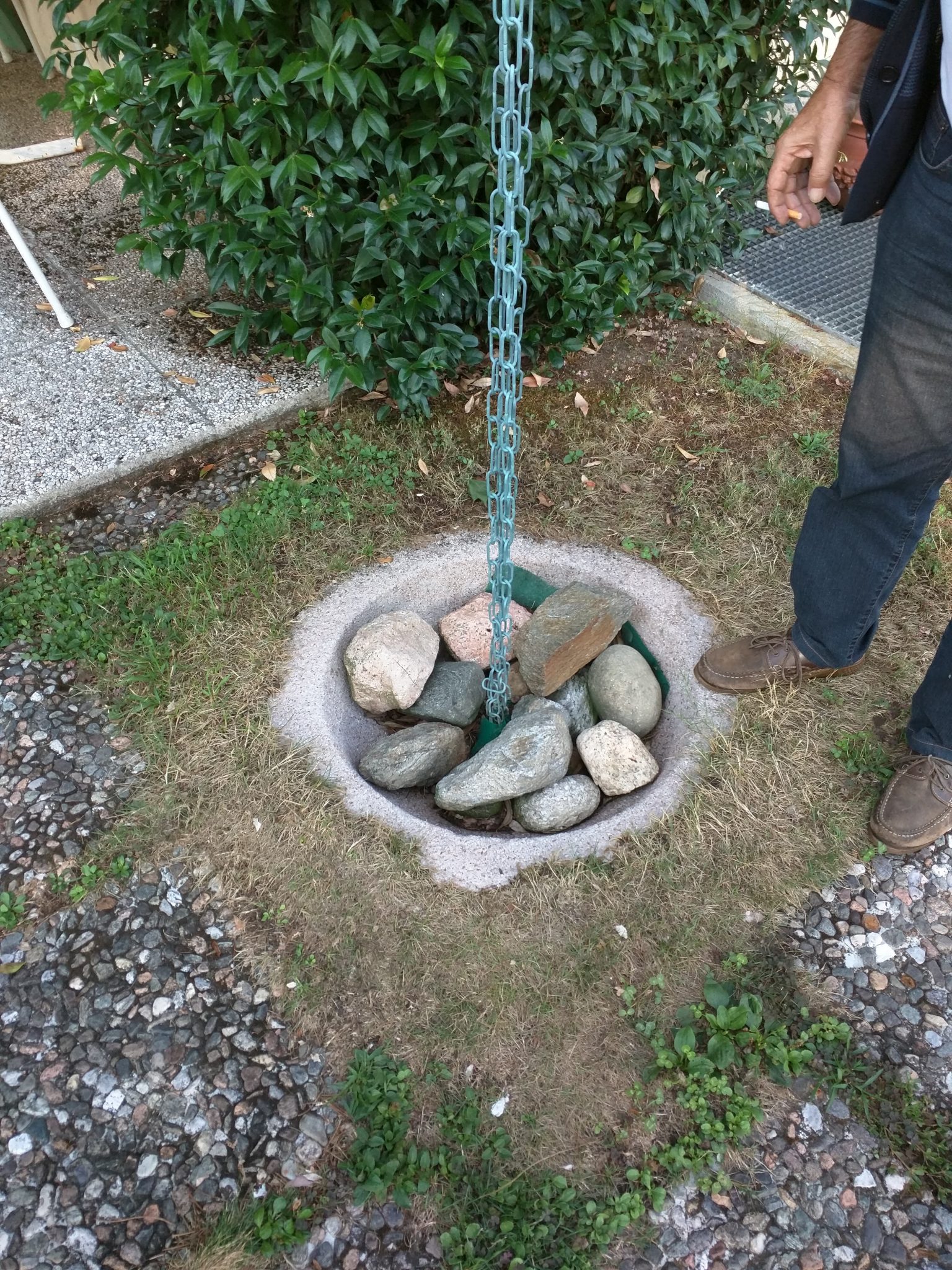I was recently in Milan for a conference. One day, while walking around one of the suburbs, I saw a new condo development. Near the street was a large billboard advertising the condos that were being built. Continue reading “How they sell condos in Milan”
An Interesting “downspout” design
I was recently in Milan and visited some relatives there. At their house, I noticed that they have what I think of as very unconventional downspouts – even though they told me this design is quite common in that area.
The “good ol’ days” really sucked
Every once in a while, someone complains about modern life and speaks wistfully about the “good old days.”
I’m so over the “good old days” – because they really weren’t good at all. In fact, they were, for the most part, pretty sickening.
Don’t take my word for it. Consider the current refugee crisis in Europe; thousands of refugees are trying to enter Europe because their lives are absolutely miserable in their countries of origin. But this isn’t the first time this sort of thing has happened. There was the case of the Vietnamese “boat people” back in the 1970s and 1980s.
Listen to this archival radio program from CBC. It’s only about an hour long, but if you are really pressed for time, then skip to minute 31.
If you’re a decent human being, you will be red-faced with shame by minute 35. The appalling ignorance, isolationism, and sanctimony of some of the speakers should be enough to turn your stomach.
Please note that this radio broadcast is from 1979, two years after the first Star Wars movie came out, 10 years after Neil Armstrong set foot on the moon, and 18 years after I myself was born. When I think that I lived in a time of such disgusting inequality and racism, I thank my lucky stars that I no longer live in the “good old days.”
And so should you.
The importance of composition
Some students quibble with me about the weight I give “composition skills.” This usually happens at the end of the semester when I grade the team design reports.
Composition is more than just spelling or grammar. These days, a computer can handle most if not all spelling and grammar concerns. All it takes on the student’s part is the presence of mind to actually use the available tools. If a computer can do it, it can’t really be that hard. Composition, on the other hand, is always hard. It’s the “art” of constructing a concise, precise sentence that communicates clearly. Poor composition skills mean either a lack in one’s education, or a lack of clarity in thinking. There’s a famous quotation: “I didn’t have time to write a short letter, so I wrote a long one instead.” Whether Mark Twain or Blaise Pascal penned it, it’s a good one. The point is this: it takes time and effort to compose good prose, and the benefits of good prose are significant. Not only does it let you get your point across accurately and convincingly, it also demonstrates to others that you have expertise in an area and respect for your audience.
Case in point: in October 2014, I participated in a meeting of the International Standards Organization, which is setting up standards on biomimetics. There were various sessions focussed on different areas of the field, some of which I have some expertise, and others in which I don’t. During one of the sessions in which I did NOT have expertise, the work involved resolving problems with the text of a working document. Notwithstanding my nearly total lack of knowledge of the topic, I was about to contribute significantly to the work, simply because I know about english composition. Indeed, a number of other participants thanked me afterwards for my contributions, saying that the document was that much stronger and better for my efforts.
Let me say it again, just to be clear: even though I had no idea what the subject matter was, I was still able to help improve the document because I know about english composition. That’s how important composition skills are.
English is funny
There is no egg in the eggplant, no ham in the Hamburger and neither pine nor apple in the pineapple.
English muffins were not invented in England; French fries were not invented in France.
Quicksand takes you down slowly, boxing rings are square, and a guinea pig is neither from Guinea nor is it a pig.
If writers write, how come fingers don’t fing. If the plural of tooth is teeth, shouldn’t the plural of phone booth be phone beeth?
If the teacher taught, why didn’t the preacher praught? If a vegetarian eats vegetables, what the heck does a humanitarian eat!?
Why do people recite at a play, yet play at a recital? Park on driveways and drive on parkways?
You have to marvel at the unique lunacy of a language where a house can burn up as it burns down; in which you fill in a form by filling it out.
What is it that when the stars are out they are visible, but when the lights are out they are invisible. And why it is that when I wind up my watch it starts but when I wind up a story it ends?
Do infants enjoy infancy as much as adults enjoy adultery?
Why is a person who plays the piano called a pianist, but a person who drives a race car not called a racist?
Why are wise men and wise guys opposites?
Why do overlook and oversee mean opposite things?
If horrific means to make horrible, does terrific mean to make terrible?
Why isn’t 11 pronounced onety one?

